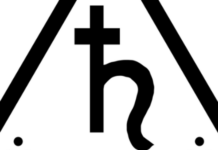When the chips are down we all need a little bit of luck. An incantation is a deceptively simple spell designed to come into effect when read aloud. They are dramatic and powerful; ideal when you need to change your fortunes. Through experimentation I have developed a system for writing effective incantations. Writing an incantation is very much like writing a song or poem. All three arrange words to create something greater than the sum of its parts.
Structure
It is important that the separate lines of the incantation are bound together. When structuring an incantation I favour the use of iambic pentameter. This is not as daunting as it sounds. The process is simply one of writing each line so that it contains five pairs of soft and hard syllables (da-dum da-dum da-dum da-dum da-dum). This particular arrangement resonates very deeply in the human mind. There is something primal about it which lends itself very well to incantations. The important thing to remember is not to force it if the right word has the wrong syllables. Two or three skipped beats in an incantation will not break its flow.
The dedication
The strength of an incantation lies in the way the words draw in power. You should therefore begin by dedicating the incantation to the source of this power. The nature of this source depends upon your personal practices.
You may, for example, choose to invoke the aid of a spirit, deity, or demon. For a fortune incantation you might consider Fortuna, Loki, Puck or Coyote. If you require luck in a specific endeavour select an entity which corresponds. I find the Greco-Roman gods, with their clearly defined roles and characters, to be a good starting point. I have often worked as a salesman, calling upon Mercury when I need a good weekend to rescue a week of poor trade.
You may prefer not to involve such entities in your workings. The four elements are an alternative worth considering. I would advice fire for dramatic effect, water for more passive good fortune, earth for sustained assistance, and air for a particularly subtle desire. Much can be achieved by experimenting with different combinations of the elements.
The body
The body of the incantation is where you state your desire. Be clear and decisive. In WYSIWYG, the title character was a strange creature with the power to grant wishes. The show’s humour was derived from the extremely restrictive way in which he interpreted the wording of these wishes.
There is no subtlety to an incantation. If you do not ask for something then you cannot expect the incantation to make it happen. Likewise think through any possible repercussions of the things you have asked for. You should also be clear if you desire good fortune in a specific are of your life such as finance or love. It is prudent not to dilute your incantations by asking for too much. I find half a dozen lines here to be more than sufficient.
Signature line
As you read each line of your incantation you will be generating a well of power. Your incantation will end with a dramatic statement. This is a point at which that power is released. It needs to be powerful and evocative. As your desire is well established by this point the statement need not be specific. Indeed there are benefits to ending all your incantations with a signature line.
I suspect everyone can think of a line in a song which triggers an emotional response every time we hear it. A signature line will have precisely this effect. It gives all your spells a shared identity. The classic example of a signature line is “So mote it be.” This is used by many Wiccans to end their spells. Your signature line can be anything you wish. Be as melodramatic as you can when writing it. As I share my spells freely, I like to brand them all with my personal signature line: “So by my will the Wyrd is broken and remade.”
The ritual
Once you have written your incantation, the first thing you should do is read it aloud. This is not a passive kind of magick. What looks good on paper can prove to be a tongue twister. Be sure to omit the last line so as not to trigger the incantation prematurely. Once you are satisfied with the result you can begin to design a suitable ritual.
Incense enhances the effectiveness of any magick working. Sandalwood and cinnamon are always good all-purpose choices. Frankincense repels negative energy, which makes it a good match for a fortune incantation. Reading an incantation by candlelight produces an enchanting effect as the flame flickers with each word spoken over it. For a generic incantation white candles are always a good way to go. For fortune in finance select a green candle, for love a red one. Blue is best avoided as it encourages balance when you are trying to tip the scales.
The rest of your ritual space should be set out according to your own practices. When everything is in place take a deep breath, clear your mind and read out your incantation with confidence.
Example
This incantation is one I have written for the eve of a long journey I plan to take:
Wise old Woden I call on you tonight
Wanderlust grips me lord, the open road call
My staff of Ash in hand I will soon leave
I shall then walk so far from west to east
I go from coast to coast, from sea to se
Protect me as I go oh lord of Asgard
May luck be mine when you are in my hear
So by my will the Wyrd is broken and remade
Image credit: JD Hancock








